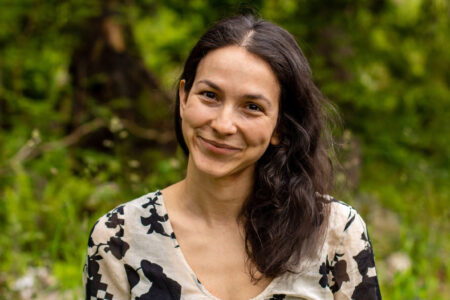First Nations Summit Celebrates Supreme Court of Canada’s Declaration of Tsilhqot’in Title
The First Nations Summit (FNS) celebrates with the Tsilhqot’in people, and all other First Nations in Canada, on this historic day as the Supreme Court of Canada has finally issued the very first declaration of Aboriginal title in the unanimous SCC decision in the William case released earlier today.
“We have waited a very long time for this day. First Nations have been fighting on the land, in the boardrooms and in the courts for countless years seeking the meaningful recognition of our inherent rights to our lands, as guaranteed by the Constitution of Canada”, stated Grand Chief Edward of the FNS political executive. “The Tsilhqot’in people have demonstrated great courage and resolve in advancing this case for so many years and we thank them for that. We celebrate with them today and honour them for their tremendous perseverance.”
“The SCC has shown courage in issuing a declaration on Tsilhqot’in title. We are pleased the Court did not succumb to the fear-mongering advanced by the Provinces and industry groups. Instead, the Court has given a solid, considered decision based on the Constitution and precedent case law”, added Cheryl Casimer, also from the FNS political executive. “It’s a joyous day for Canada and for Indigenous peoples. The SCC decision is a measure of justice and a great step forward in reconciliation.”
The Tsilhqot’in began their journey 25 years ago. A whole generation has grown up in this time. The William case, named for Chief Roger William of the Xeni Gwet’in First Nation, is one of the most significant cases ever brought before the SCC. After 339 days at trial, millions of dollars paid in legal fees, a nearly 500-page trial decision and two appeals, the SCC has finally given the final word by confirming that Aboriginal title is real and that there is real meaning to the recognition and protection of Aboriginal rights in section 35 of the Constitution Act. The First Nations Summit was one of thirteen groups intervening in support of the Tsilhqot’in in this important case.
“Now we can get on with the hard work of true reconciliation,” stated Robert Phillips, political executive member of the First Nations Summit. “The landmark decision confirms that ‘Governments are under a legal duty to negotiate in good faith’ with First Nations. The decision puts to rest at last the Crown’s impoverished view that Aboriginal title only exists in small spots and includes no substantive rights of jurisdiction. Now there is truly a clearer path forward for the negotiation of fair, just and equitable treaties and agreements in British Columbia.”
“First Nations have a desire to achieve reconciliation with the Crown through honourable negotiations and partnerships. We seek respectful and principled co-existence, where our identities as pre-existing societies with land and governance rights is respected in both law and practice. Respect for and recognition of Indigenous human rights is fundamental to achieve reconciliation. We believe there is a strong, principled framework for engagement already set out in both Canadian and international law. It is just a matter of getting on with it”, concluded Chief John.
This article is a press release from the First Nations Summit.

























